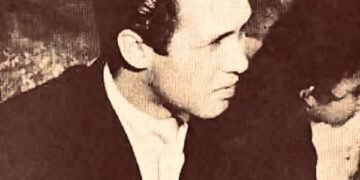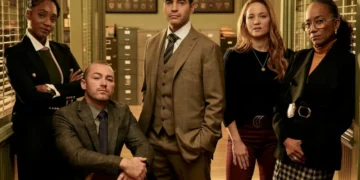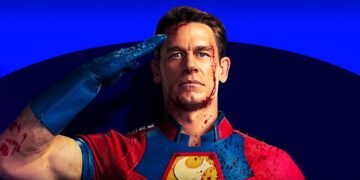Clint Eastwood is a name that is synonymous with Hollywood. With a career spanning over six decades, Eastwood has become one of the most iconic and influential figures in the film industry. From his early days as a cowboy in spaghetti westerns to his recent directorial masterpieces, Eastwood has left an indelible mark on the world of cinema. In this article, we will take a closer look at the legendary career of Clint Eastwood and the impact he has had on the entertainment world.
Early Life and Career Beginnings
Clint Eastwood was born on May 31, 1930, in San Francisco, California. He grew up in a working-class family and developed a love for acting at a young age. After serving in the U.S. Army during the Korean War, Eastwood moved to Los Angeles to pursue his acting career.
His first major role was in the TV series “Rawhide” in 1959, where he played the character of Rowdy Yates. This role helped launch his career and led to his breakthrough role as the “Man with No Name” in Sergio Leone’s “Dollars Trilogy” of spaghetti westerns.
The Spaghetti Westerns
by Alexander McFeron (https://unsplash.com/@alexmcferon)
The “Dollars Trilogy” (A Fistful of Dollars, For a Few Dollars More, and The Good, the Bad and the Ugly) catapulted Eastwood to international fame and solidified his status as a Hollywood icon. His portrayal of the rugged, no-nonsense cowboy in a poncho became his signature look and is still recognized and imitated today.
The success of these films also helped popularize the spaghetti western genre, which was known for its gritty, violent, and stylized approach to storytelling. Eastwood’s collaborations with director Sergio Leone are considered some of the greatest westerns of all time and have influenced countless filmmakers.
Transition to Director
In the 1970s, Eastwood began to transition from acting to directing. He made his directorial debut with “Play Misty for Me” in 1971 and went on to direct and star in several successful films, including “High Plains Drifter” and “The Outlaw Josey Wales.”
The Dirty Harry Franchise
by Troy Jarrell (https://unsplash.com/@troyjarrell)
In 1971, Eastwood took on the role of Detective Harry Callahan in “Dirty Harry,” a film that would become one of his most iconic and beloved roles. The film spawned four sequels and solidified Eastwood’s status as an action star.
The character of Dirty Harry is known for his tough, no-nonsense attitude and his famous catchphrase, “Go ahead, make my day.” The franchise has become a cultural phenomenon and has been referenced and parodied in various forms of media.
Later Career and Directorial Success
In the 1990s, Eastwood continued to act and direct, with films such as “Unforgiven” and “In the Line of Fire.” However, it was his 2004 film “Million Dollar Baby” that cemented his status as a critically acclaimed director.
The film, which Eastwood directed and starred in, won four Academy Awards, including Best Picture and Best Director. This marked a turning point in Eastwood’s career, as he became known for his thought-provoking and emotionally charged films.
“Gran Torino” and “American Sniper”
by Ben Tofan (https://unsplash.com/@bentofan)
In 2008, Eastwood directed and starred in “Gran Torino,” a film that received widespread critical acclaim and was a box office success. The film tackled themes of racism and redemption and showcased Eastwood’s versatility as a director.
In 2014, Eastwood directed “American Sniper,” a biographical war drama based on the life of Navy SEAL sniper Chris Kyle. The film was a commercial and critical success, earning six Academy Award nominations and becoming the highest-grossing film of Eastwood’s career.
Legacy and Impact
Clint Eastwood’s career has spanned over six decades and has left a lasting impact on the film industry. He has received numerous accolades, including four Academy Awards and the prestigious Irving G. Thalberg Memorial Award.
Influence on Pop Culture
Eastwood’s iconic roles and catchphrases have become ingrained in popular culture. From his cowboy persona in the spaghetti westerns to his tough, no-nonsense characters in the Dirty Harry franchise, Eastwood has become a cultural icon.
His films have also been referenced and parodied in various forms of media, further solidifying his place in pop culture. Even his fashion choices, such as the poncho in the spaghetti westerns, have become iconic and recognizable.
Impact on Filmmaking
by KAL VISUALS (https://unsplash.com/@kalvisuals)
Eastwood’s directorial style is known for its simplicity and efficiency. He is known for his no-frills approach to filmmaking, often using minimal takes and avoiding elaborate special effects. This has influenced many filmmakers, who admire Eastwood’s ability to tell a compelling story without relying on flashy techniques.
His films have also tackled important and controversial topics, such as racism, war, and gun violence, sparking discussions and debates among audiences. Eastwood’s willingness to take on these challenging subjects has earned him respect and admiration in the film industry.
Conclusion
Clint Eastwood’s career has been nothing short of legendary. From his early days as a cowboy in spaghetti westerns to his recent directorial masterpieces, Eastwood has become a household name and a Hollywood icon. His impact on pop culture and filmmaking is undeniable, and his legacy will continue to inspire future generations of filmmakers. As Eastwood himself once said, “I don’t believe in pessimism. If something doesn’t come up the way you want, forge ahead. If you think it’s going to rain, it will.”


































































